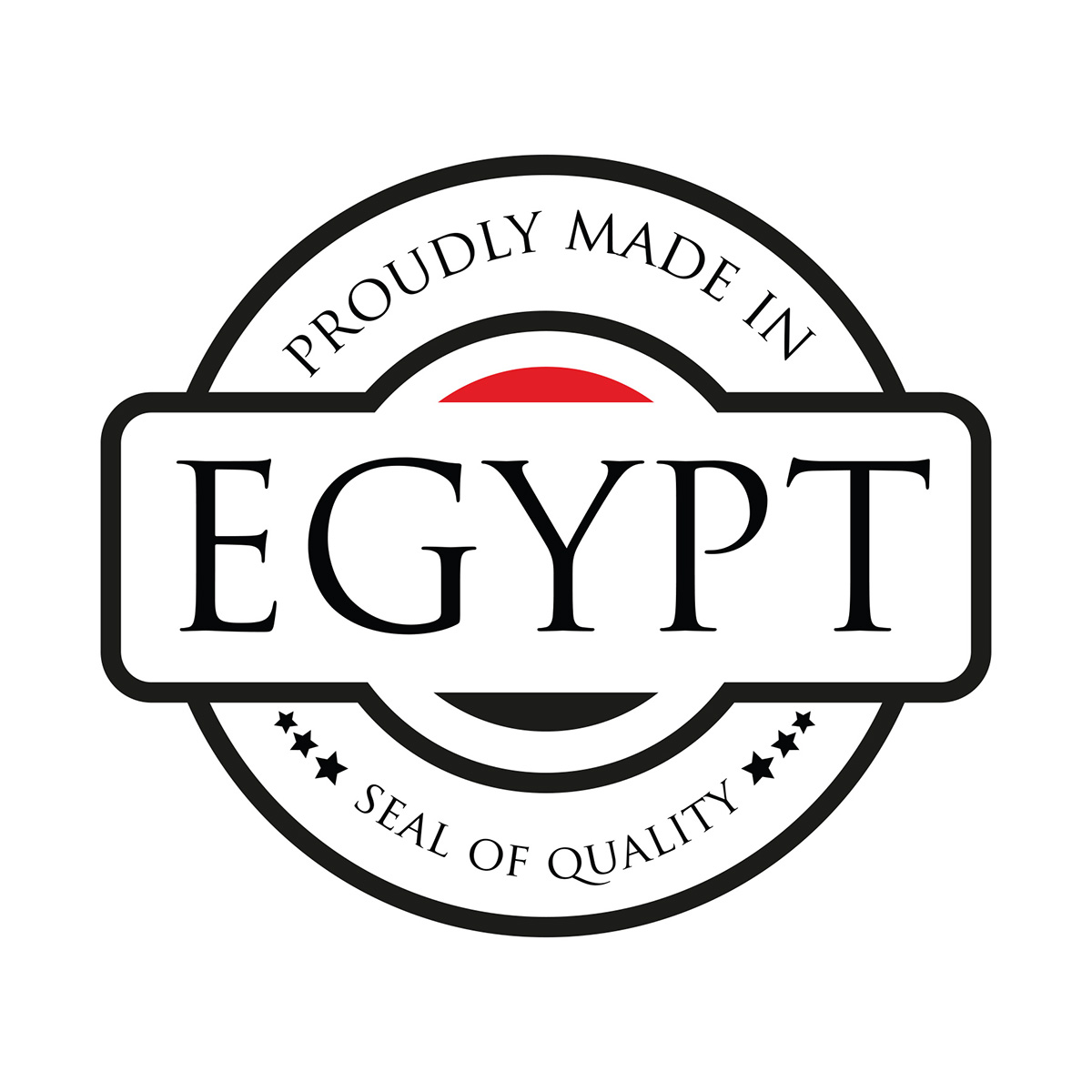Egypt has undertaken a number of initiatives to boost the industrial sector, including those pertaining to infrastructure development, the establishment of a conducive business environment, and enhancements in the efficiency and proficiency of human resources. Notwithstanding the Covid-19 pandemic and the Russian-Ukrainian conflict, the government persisted with its reform program to realize its vision of building a robust and sustainable national industry that complies with international standards.
These global crises generated a number of investment opportunities for the Egyptian economy, particularly the industrial sector, as investors sought geopolitical stability and more stable supply chains. The Egyptian economy possesses nearly every element of the ecosystem that supports the industrial sector, including abundant consumer demand, raw materials, a substantial labor force, and a strategic location that provides numerous routes to international markets via logistical hubs and a variety of land, sea, and airports. These factors—local characteristics, global circumstances, and national initiatives—taken together have created a number of intriguing investment opportunities spanning multiple industrial sectors.
Initiatives to Advance the Industrial Sector
Numerous initiatives, including the development of transportation and logistics sectors and the construction of the infrastructure necessary for an advanced industrial base, have targeted the industrial sector. Initiatives were also undertaken to establish logistical linkages and multimodal transportation systems in order to facilitate the country’s growing ambitions of becoming a global center for trade and logistics.
Endeavors encompassed initiatives aimed at enhancing the investment climate, establishing a business-friendly environment via modifications and advancements in legislation and institutions, and offering a multitude of facilitations, such as the three-year exemption of 19 industrial sectors from real estate tax since January 2022. Additionally, there were improvements in procedure facilitation and data provision, let alone the launch of the investment map, and the expansion of the company’s base Golden License beneficiaries. The significance of promoting competitive neutrality and fostering competition was not overlooked. To enable the private sector to contribute to growth and economic development, the State Ownership Policy Document was executed, along with establishing multiple channels of communication with investors and industrialists across all industries.
In pursuit of actively fostering and supporting the industrial sector, these encompassed the implementation of one hundred incentive programs to promote industry development, the initiation of a national program to enhance domestic manufacturing, the regulation of the industrial land exploitation and allocation system, the construction of seventeen industrial complexes in fifteen governorates throughout Egypt, the inauguration of several specialized industrial cities, and the launch of the Proudly Made in Egypt initiative, ensuring the preference for local products in government contracts and introducing Egypt’s industrial services and licenses through a unified digital platform by December 2022.
Technical Education and Training’s Contribution to Egyptian Industry
Since 2019, when President Al-Sisi proclaimed 2019 the Year of Education and a comprehensive strategy and detailed roadmap were formulated to elevate education to the second wing, following health, in the Egyptian human building system, the human element has been incorporated into the state’s development plan. Egypt’s plan to develop curricula and improve the quality of the educational system revolved around four main axes: the establishment of Japanese schools, the modification of the high school system, the development of the education system, and the establishment of applied technology schools. Egypt has also embraced a comprehensive and integrated strategic vision to improve technical education accessibility in line with the most recent, widely accepted international systems and initiatives. The strategy’s overarching goal is to increase the proportion of exceptional prep school students (with grades above 85 percent) enrolled in technical education to 20 percent by 2030. The strategy entailed augmenting the proportion of technical and vocational education institutions dependent on community partnerships to 20 percent by 2030 and increasing the percentage of technical education graduates employed in their respective fields of specialization to 80 percent by 2030. In collaboration and partnership with the private sector, the system of various industrial technical schools has been developed, and the skills of their employees have been enhanced, supporting industrial specializations that are beneficial to Egypt’s comprehensive development plans. The Technology and Innovation Industrial Council has designed a plan for the upcoming phase that includes offering technological incubators, making it easier for export companies to obtain financing, improving the efficiency of the technical staff needed to transfer and localize technology, and conducting specialized tests to develop industrial products and increase added value. Additionally, Egypt sought to enhance the technical education system in Egyptian universities. In this respect, a draft law establishing the Egyptian National Authority for Quality Assurance and Accreditation for Technical and Vocational Education was approved by the House of Representatives in December 2021.
Additionally, the system of Applied Technology Schools was established, and in collaboration with the Ministry of Education and Technical Education, the National Initiative for Industry Development, Ibdaa, established the model of national Technical Sciences Schools. During the second edition of the annual International Manufacturing Convention and Exhibition, two Ibdaa-associated Technical Science Schools were launched: the Ibdaa National Technical Sciences School in Badr, which specializes in artificial intelligence, and the Ibdaa National Technical Sciences School in Damietta, which specializes in logistics services and ship maintenance and repair.
Opportunities for Egypt’s Industrial Sector
A multitude of encouraging investment opportunities in various industrial sectors were made possible by the state’s efforts. The proliferation of gas discoveries has presented encouraging prospects within the chemical, fertilizer, and energy industries. As a result of the advancement of digital infrastructure, the field was better equipped to accommodate the electronics and technology sectors. New prospects have emerged within the heavy industry sector subsequent to the implementation of the nationwide strategy aimed at localizing the automotive industry. The government’s transition towards implementing a strategy to address climate change has generated several prospects within the realm of environmentally sustainable sectors. Other opportunities exist in the textile industry sector as a result of the state’s five main initiatives to support it. These initiatives include the strategy to restructure textile companies, the development of cotton gins, the building of a complex for spinning and weaving in the city of Robbiki, the opening of Egypt’s largest textile city, and the introduction of a new cotton trading system.
Amidst the Covid-19 pandemic crisis, the significance of the pharmaceutical industry sector became apparent. This highlighted the efforts the Egyptian government has been taking to develop this industry since 2016, which has led to Egypt owning the greatest number of pharmaceutical factories in the Arab world and the region—158 factories as of 2019. President Abdel-Fattah Al-Sisi inaugurated the largest pharmaceutical city in the Middle East in the first half of 2021, with one of its goals being to replace imports to meet a demand gap amounting to about 15 percent of total local consumption of residents.
Among Egypt’s many regions and investment opportunities, the Suez Canal Economic Zone stands out as one of the most important and promising due to the access it offers to global value-added supply chains and the availability of large-scale industrial complexes. The Suez Canal Economic Zone is a unique economic zone that encompasses six major ports, namely East Port Said Port, West Port Said Port, Adabiya Port, Arish Port, El Tour Port, and Sokhna Port, as well as four promising industrial zones, namely Ain Sokhna Industrial Zone, East Port Said Industrial Zone, West Qantara Industrial Zone, and Technology Valley Zone in East Ismailia.
The Sokhna Industrial Zone offers a wide range of industrial opportunities in the following sectors: automotive assembly and spare parts, food processing, SMEs, electronics, pharmaceuticals, logistics, express shipping, petrochemicals, heavy industry, textiles and ready-to-wear industry, energy components, refining products, and construction materials.
The industrial zone of East Port Said provides opportunities for businesses in the following sectors: automotive assembly, food and feeding industries, small and medium-sized industrial complexes, electronics and home appliances, pharmaceutical industries, logistics services center, engineering equipment and bales, robotics, fertilizers, textiles and ready-to-wear industry, electric power, information and communications technology, and building and construction materials.
The West Qantara Industrial Zone focuses on agricultural businesses in general, the beverage and food industry, small and medium enterprise complexes, industry support services, related logistics services, the dry port, feeding and integrated industries, community facilities, and textiles and ready-made clothing.
The Technology Valley in eastern Ismailia focuses on high-tech industries, commercial and community uses, integrated renewable energy industries, and educational and scientific research institutions.
On the other hand, the growth of regional and global partnerships and joining economic blocs will have an impact on Egypt’s industrial sector in the future. This will be reflected in the variety of cooperation links Egypt has with the rest of the world and will bring about a number of benefits and opportunities for the state, particularly in terms of attracting industrial investment, transferring and localizing cutting-edge technology, and creating new avenues for Egyptian products to enter international markets.
Given President Al-Sisi’s emphasis on inter-factory cooperation, it is worth noting the importance of expanding the formation of single-industry clusters, which aids in the establishment of more reliable local supply chains and promotes cooperation among small, medium, and large businesses.
In conclusion, despite the government’s numerous initiatives to localize and strengthen Egyptian industry, as well as increase the proportion of locally produced goods, Egyptian consumer awareness remains the most reliable predictor of the government’s success in advancing the development and prosperity of the Egyptian economy and hoisting the “Proudly Made in Egypt” flag.













